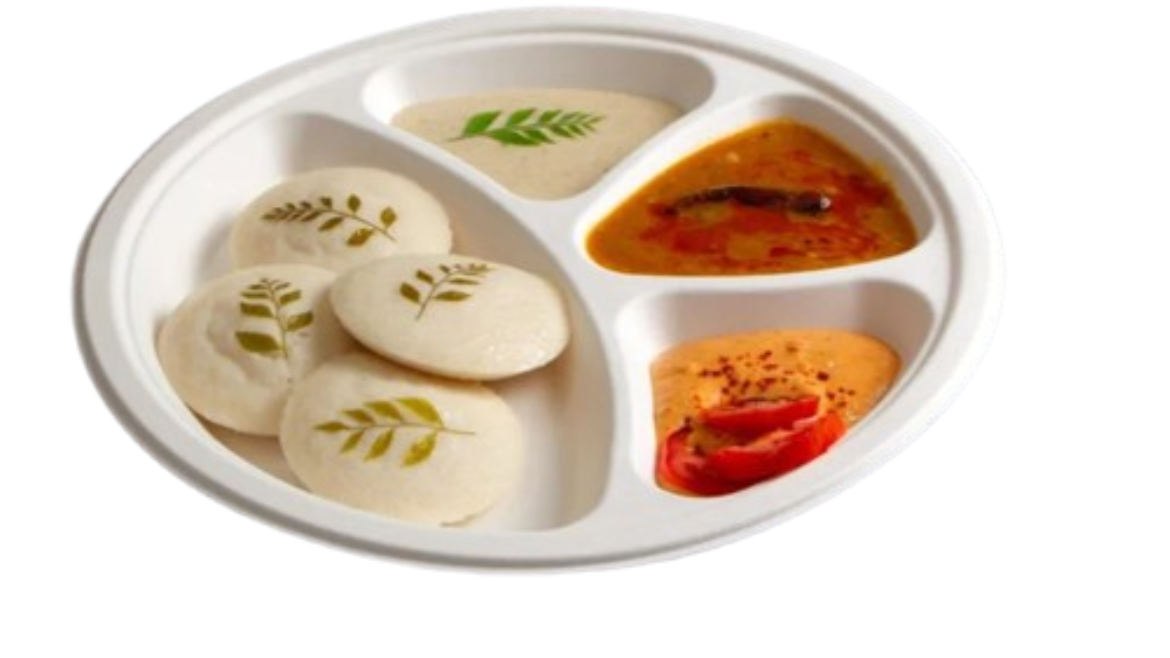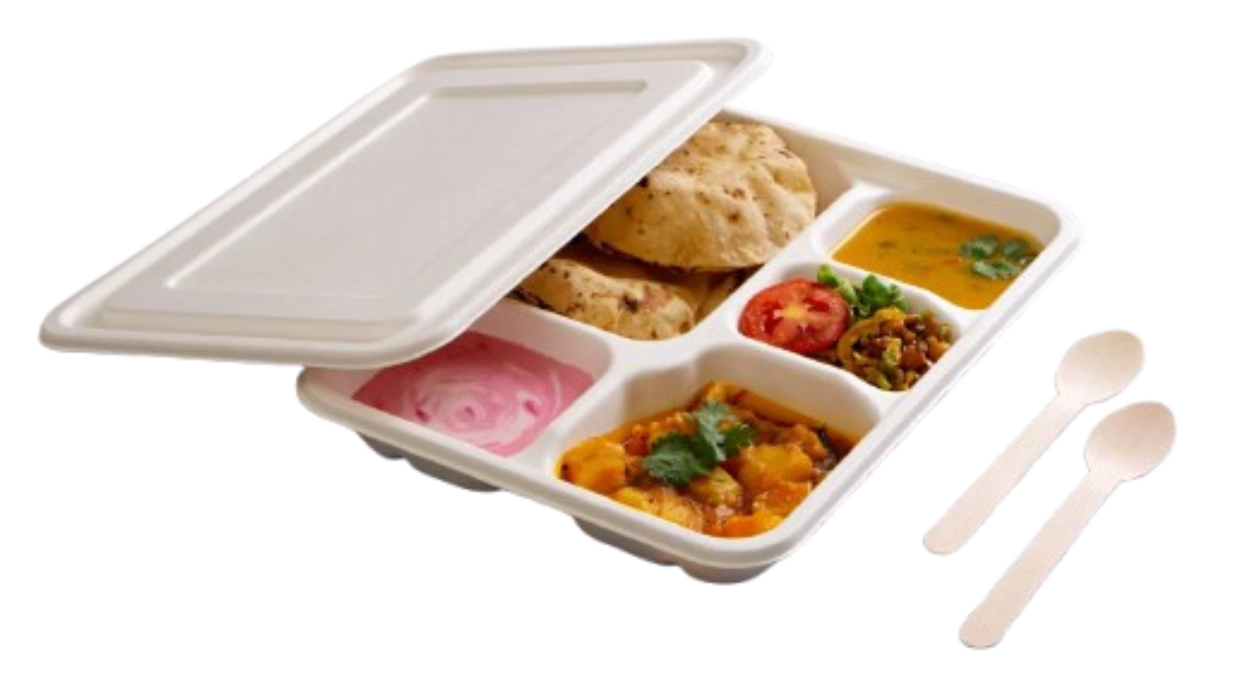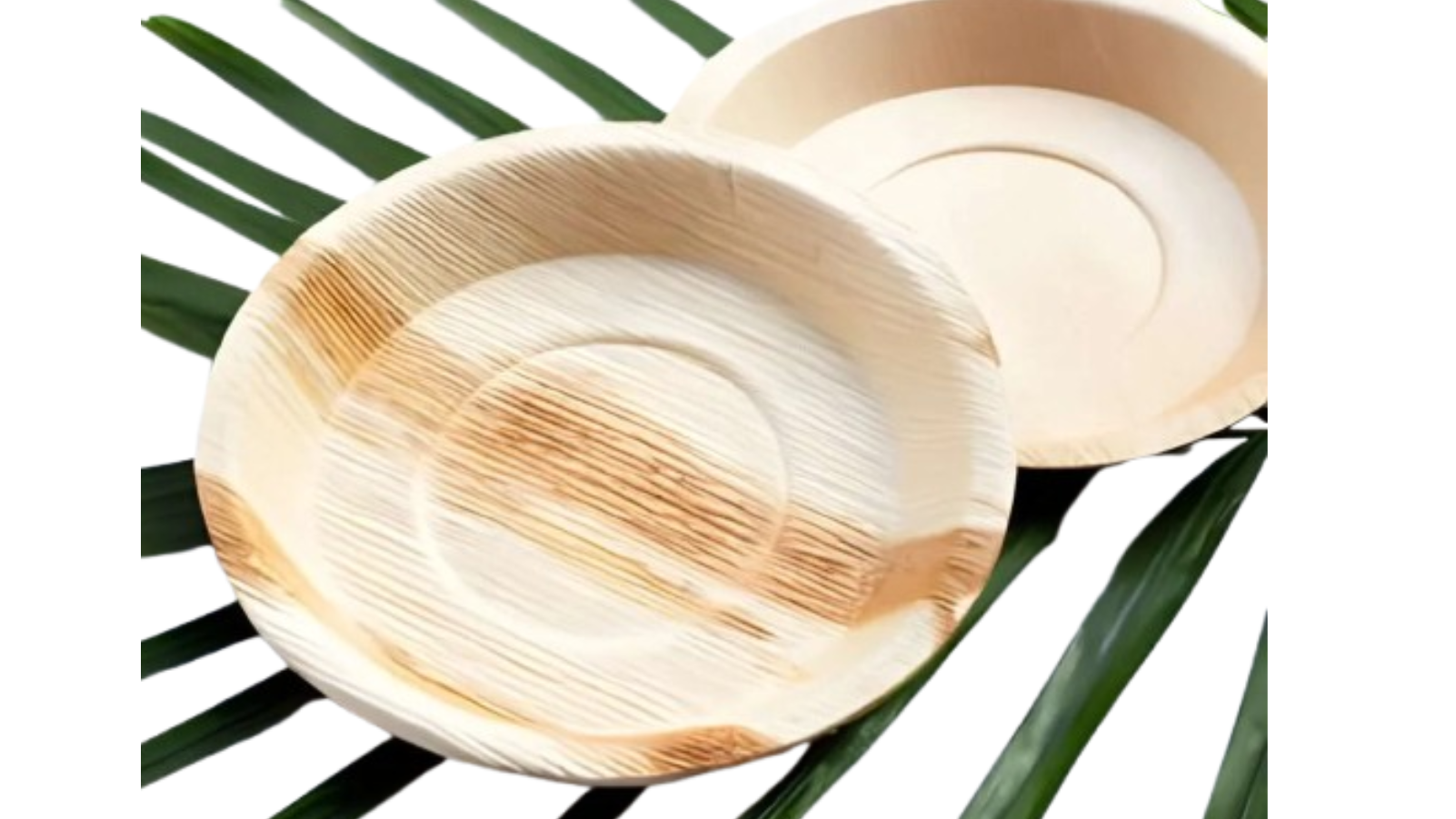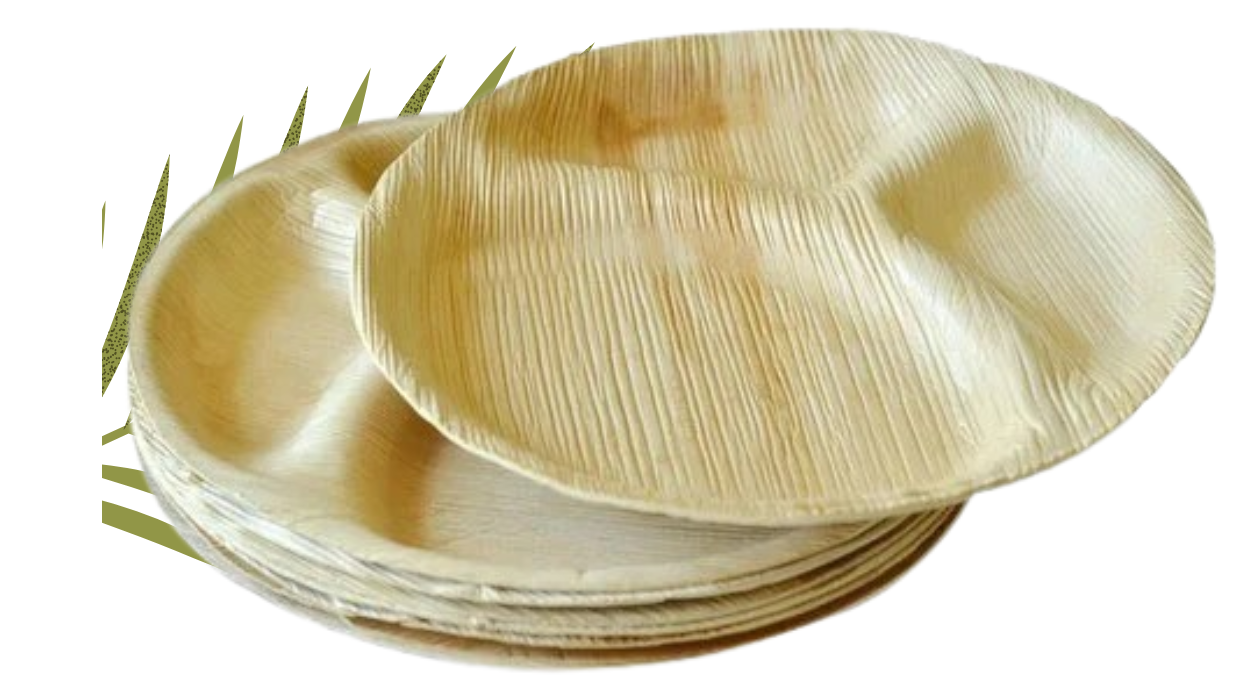
Bagasse tableware, made from the fibrous residue of sugarcane after juice extraction, is a sustainable alternative to single-use plastics and other non-biodegradable materials. In India, a major sugarcane producer, bagasse tableware has gained traction due to its eco-friendly properties, including biodegradability, compostability, and renewability. The Indian market for sugarcane bagasse tableware is growing rapidly, valued at USD 200 million in 2024 and projected to reach USD 670 million by 2030, with a CAGR of 11.45% (2022–2030). This growth is driven by increasing consumer demand for sustainable products, government bans on single-use plastics (effective July 1, 2022), and the global push for environmentally responsible dining solutions. Below is a detailed overview of leading bagasse tableware manufacturers, suppliers, and exporters in India, highlighting their contributions to sustainable dining.
Key Features of Bagasse Tableware
• Eco-Friendly: Made from 100% natural sugarcane pulp, a byproduct of the sugar industry, reducing waste and environmental impact.
• Biodegradable and Compostable: Decomposes naturally without harming the environment, unlike plastic or Styrofoam.
• Durable and Functional: Sturdy, leak-resistant, grease-resistant, and microwave-safe, suitable for hot and cold meals.
• Chemical-Free: Free from plastic, wax coatings, and harmful chemicals, ensuring food safety.
• Versatile: Available in various forms, including plates, bowls, cups, clamshells, and cutlery, catering to residential, commercial, and institutional needs.
Leading Bagasse Tableware Manufacturers, Suppliers, and Exporters in India
Manufacturing Process
The production of bagasse tableware involves:
1. Sourcing Bagasse: Residual sugarcane fiber is collected after juice extraction.
2. Pulping: Bagasse is churned into pulp using high temperature and pressure.
3. Molding: Pulp is molded into various shapes (plates, bowls, etc.) using advanced machinery.
4. Quality Testing: Products undergo rigorous tests for food safety, durability, and biodegradability.
5. Packaging and Distribution: Finished products are packaged and distributed globally, ensuring timely delivery.
Environmental Impact
• Reduces Plastic Waste: Bagasse tableware is a direct response to India’s single-use plastic ban, offering a biodegradable alternative.
• Lowers Carbon Footprint: Made from renewable sugarcane pulp, reducing reliance on fossil-based materials.
• Compostable: Products decompose naturally, supporting a circular economy.
• Supports Local Economies: Utilizes India’s abundant sugarcane resources and creates jobs, especially for women in companies like Ecoholic.
Market Trends
• Growing Demand: Rising consumer awareness and government regulations drive demand for eco-friendly tableware.
• Global Expansion: Indian exporters like Goldleaf, Quit Plastic, and Sadho are meeting international demand in Europe, North America, Asia, and Africa.
• Innovation: Companies invest in R& D for new designs, molds, and sustainable materials like rice straw and bio-additives.
Conclusion
India’s bagasse tableware industry is at the forefront of the global sustainability movement, offering high-quality, eco-friendly alternatives to plastic and Styrofoam. Leading manufacturers like are driving innovation, quality, and environmental responsibility. By choosing bagasse tableware, consumers and businesses contribute to reducing plastic waste, lowering carbon footprints, and promoting sustainable practices. For more information, contact these companies via their websites or explore platforms like IndiaMART for supplier details.
• Bagasse Tableware
• Eco-Friendly Products
• Biodegradable Tableware
• Sugarcane Bagasse
• Sustainable Dining
• Compostable Tableware
• India Manufacturers
• Eco-Friendly Exporters
• Disposable Tableware
• Green Packaging
• Food-Safe Tableware
• Single-Use Plastic Alternative


